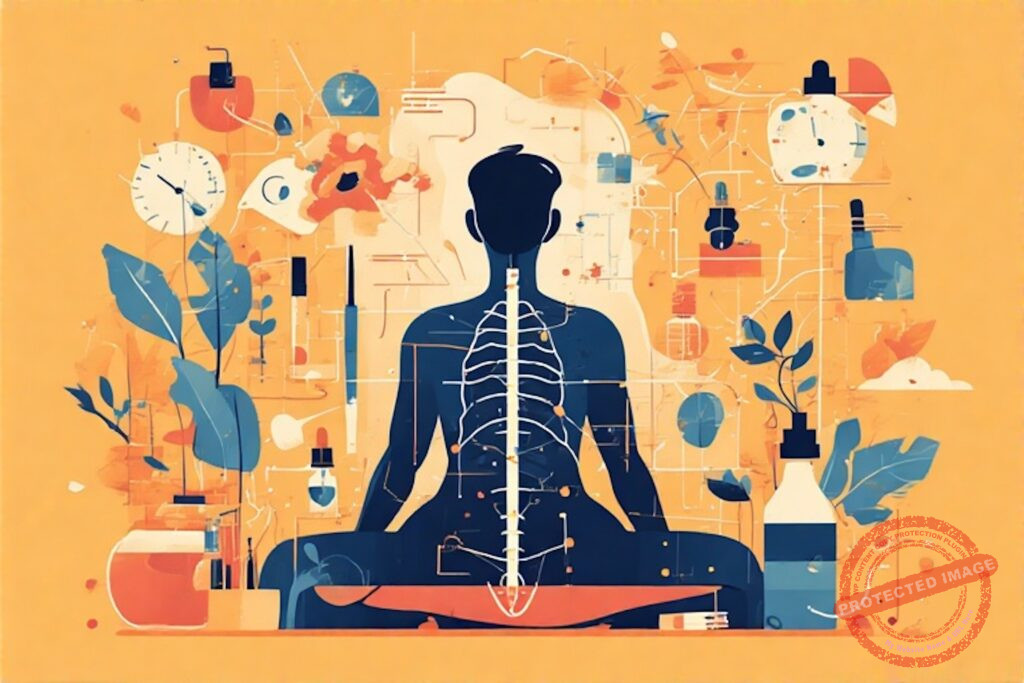
Acupuncture, an ancient practice with roots in Traditional Chinese Medicine (TCM), has garnered increasing attention and validation from modern scientific research. Many people are curious about its efficacy and, more specifically, want to understand the science behind acupuncture. This FAQ aims to shed light on the fascinating ways acupuncture interacts with the body, supported by legitimate research, offering an encouraging perspective on its potential benefits.
What is the core scientific understanding of how acupuncture works?
While traditionally explained through concepts like Qi (vital energy) and meridians (energy pathways), the contemporary science behind acupuncture offers several well-researched physiological explanations. When fine, sterile needles are inserted at specific acupoints, they stimulate the central nervous system.
This stimulation triggers the release of various biochemical substances, including endorphins (the body’s natural painkillers), enkephalins, and other neurotransmitters into the muscles, spinal cord, and brain. These chemicals can modulate pain perception, reduce inflammation, calm the nervous system, and stimulate the body’s innate healing abilities, promoting both physical and emotional well-being. Essentially, acupuncture helps to kickstart and amplify the body’s own capacity to heal and rebalance.
What does research say about acupuncture for pain management?
The evidence supporting acupuncture for pain relief is arguably the most robust. Numerous high-quality studies, including systematic reviews and meta-analyses, have demonstrated its effectiveness. For instance, a major meta-analysis published in the Archives of Internal Medicine (now JAMA Internal Medicine), which pooled data from thousands of patients, concluded that acupuncture is effective for treating chronic pain, including back and neck pain, osteoarthritis, and chronic headaches.
Researchers found that actual acupuncture was superior to both sham acupuncture (where needles are inserted at non-acupoints or don’t penetrate the skin) and no acupuncture. This suggests that acupuncture’s effects are not due to the placebo effect. Many leading health organizations now recognize acupuncture as a viable treatment option for various pain conditions, offering a promising avenue for those seeking relief.
How does the science behind acupuncture explain its anti-inflammatory effects?
Inflammation is a key factor in many chronic diseases and pain states. Exciting research into the science behind acupuncture reveals its significant anti-inflammatory mechanisms. Studies have shown that acupuncture can downregulate pro-inflammatory cytokines (signaling molecules that promote inflammation) and upregulate anti-inflammatory cytokines. One identified mechanism involves the stimulation of the vagus nerve, a major component of the parasympathetic nervous system, which can lead to a reduction in systemic inflammation.
Research published in journals like Nature Medicine has explored how electroacupuncture can trigger a vagus-adrenal axis, leading to the release of dopamine, which has anti-inflammatory properties. This growing body of evidence highlights acupuncture’s potential to address conditions with an inflammatory component.
Can acupuncture help with conditions beyond pain, according to studies?
Yes, research supports acupuncture’s efficacy for a range of other conditions. It’s particularly well-recognized for its effectiveness in managing nausea and vomiting, especially postoperative nausea and vomiting (PONV) and that induced by chemotherapy. The P6 (Neiguan) acupoint on the wrist has been extensively studied and is often recommended for these conditions.
Furthermore, clinical trials and systematic reviews have suggested benefits for conditions like allergic rhinitis (hay fever), migraines, tension headaches, and even anxiety disorders. While more research is always ongoing, the existing evidence is encouraging and continually expanding our understanding of acupuncture’s therapeutic reach, showcasing the depth of the science behind acupuncture.
What have brain imaging studies revealed about acupuncture’s effects?
Modern neuroimaging techniques like functional magnetic resonance imaging (fMRI) and positron emission tomography (PET) have provided fascinating insights into how acupuncture affects brain activity. These studies have shown that stimulating acupoints can modulate activity in specific brain regions associated with pain perception and regulation, such as the somatosensory cortex, thalamus, amygdala, and prefrontal cortex.
For example, research has demonstrated that acupuncture can deactivate brain areas that process pain signals while activating regions involved in pain modulation and the regulation of emotion. These objective findings help to demystify acupuncture, visually demonstrating its physiological impact on the brain and reinforcing its scientific basis.
Is acupuncture considered safe, and where can I learn more?
When performed by a licensed and nationally board certified acupuncturist using sterile, single-use needles, acupuncture is considered very safe with minimal side effects. Most people report feeling little to no pain, often experiencing a sense of relaxation during and after treatment. Contact the National Certification Commission for Acupuncture and Oriental Medicine for more information. They are located at 2001 K Street, NW, 3rd Floor North, Washington, DC 20006, Phone: 888.381.1140, Website: info@thenccaom.org
If you’re interested in exploring acupuncture, it’s important to seek out a properly trained and certified acupuncturist. For more information on the research and evidence supporting acupuncture, you can explore resources from the National Center for Complementary and Integrative Health (NCCIH) at the National Institutes of Health (NIH), as well as numerous peer-reviewed scientific journals. Discussing acupuncture with your doctor can also help determine if it’s a suitable option for your specific health needs, allowing you to confidently explore this effective and scientifically supported therapy.
About Raleigh Acupuncture
At Raleigh Acupuncture Associates, we are deeply committed to providing the highest quality professional acupuncture while being rooted in strong Judeo-Christian values of love, faith, kindness, and truth. We guide our practice with compassionate care, where each patient is treated with respect and dignity, regardless of their background, faith, or beliefs. We welcome people from all walks of life and strive to create a warm, inclusive environment promoting healing and holistic wellness. Our dedication to delivering exceptional acupuncture is paired with a genuine love for helping others, making our clinic a place where faith and professional medical care come together for the well-being of every patient.
Next Steps
BOOK NOW to schedule an appointment online.
Meet Our Practitioners (Video).
Learn about all the conditions we treat.
Focus Keyphrase: Science Behind Acupuncture
Image generated with https://perchance.org/ai-text-to-image-generator




